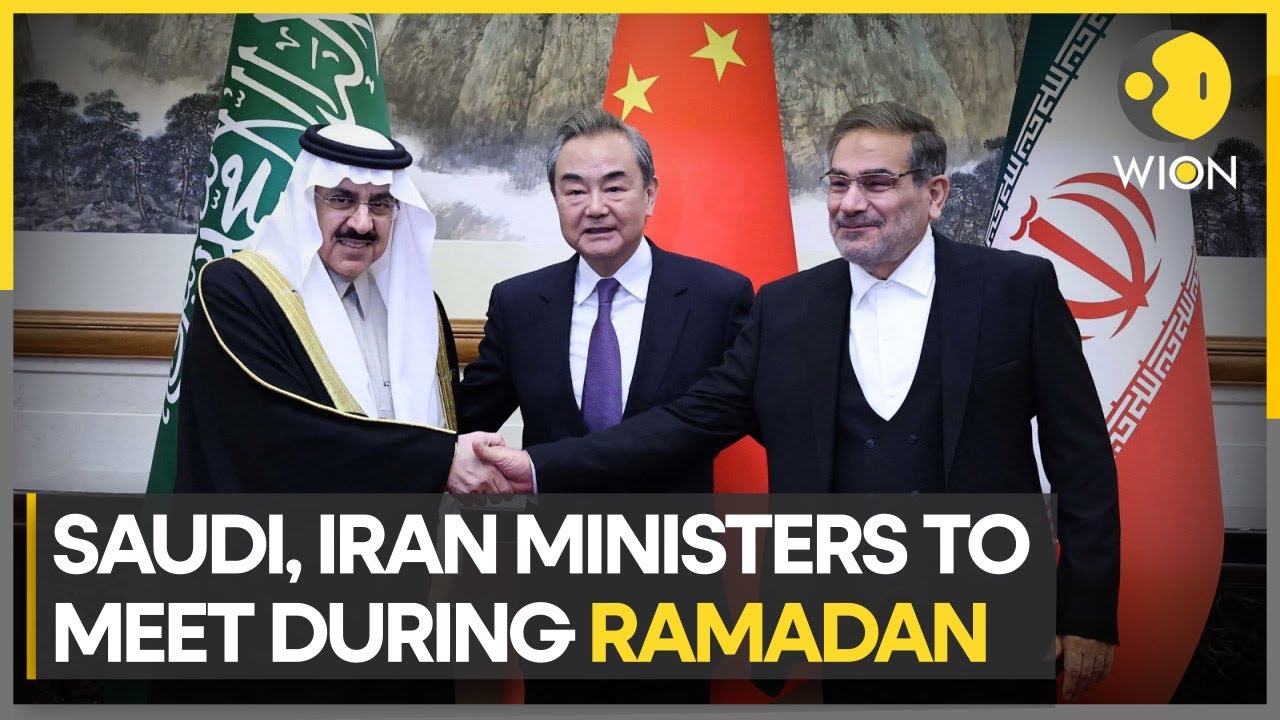Saudi Arabia And Iran Foreign Ministers Will Meet During Ramadan | Wion
Unleash Your Creative Genius with MuseMind: Your AI-Powered Content Creation Copilot. Try now! 🚀
In a surprising turn of events, Iran's foreign minister and his Saudi Arabian counterpart are expected to meet soon. This meeting, which is scheduled to take place before the end of the holy month of Ramadan, could pave the way for the reopening of embassies between the two nations.
The reconciliation deal, brokered by China on March 10th, has created an opportunity for Iran and Saudi Arabia to revive their relations after years of hostility. In fact, this is the second time that the two ministers have spoken to each other in less than a week.
During their phone conversation, the ministers discussed a number of common issues, taking into account the various agreements that were signed on March 10th. The details of these agreements have not been disclosed, but they have set the stage for a bilateral meeting during Ramadan.
The exact date of the meeting has yet to be confirmed, but Saudi officials see it as the next step in restoring ties between the two nations, which were severed seven years ago. Experts believe that both Iran and Saudi Arabia stand to benefit from this de-escalation.
For Iran, it is an opportunity to undercut America's efforts to isolate it in the region. By reestablishing ties with Saudi Arabia, Iran can strengthen its position and influence in the Gulf. On the other hand, Saudi Arabia is focusing on economic development and sees the reopening of ties as a step towards normalcy in the region.
This meeting marks a significant development for the Arab nations, as it signifies a move towards diversity and normalcy in the region. It is a testament to the power of diplomacy and the potential for peaceful resolutions to long-standing conflicts.
The Role of China in the Reconciliation Deal
The reconciliation deal between Iran and Saudi Arabia was brokered by China, highlighting the country's growing influence in the region. China's involvement in this process demonstrates its commitment to maintaining stability and security in the Gulf.
By mediating this deal, China has effectively put an end to the threat of instability and insecurity in the region. This not only benefits Iran and Saudi Arabia but also has broader implications for the global community.
China's role as a mediator in this conflict showcases its diplomatic prowess and its ability to navigate complex international relations. It serves as a reminder that diplomacy and dialogue can be powerful tools for resolving conflicts and building bridges between nations.
The Implications for the Region and Beyond
The reopening of embassies between Iran and Saudi Arabia has far-reaching implications for the region and beyond. It signals a shift towards a more stable and secure Gulf, which is crucial for global peace and security.
The de-escalation of tensions between Iran and Saudi Arabia is a positive development for the Middle East. It reduces the risk of further conflicts and allows for greater cooperation and collaboration between nations in the region.
Furthermore, the reestablishment of ties between Iran and Saudi Arabia has the potential to reshape the geopolitical landscape in the Middle East. It could lead to new alliances and partnerships, as well as increased economic opportunities for both nations.
In conclusion, the upcoming meeting between Iran's foreign minister and his Saudi Arabian counterpart is a significant step towards the reopening of embassies and the normalization of relations between the two nations. It is a testament to the power of diplomacy and the potential for peaceful resolutions to long-standing conflicts. With China's mediation and the willingness of both sides to engage in dialogue, there is hope for a brighter and more stable future in the region.
